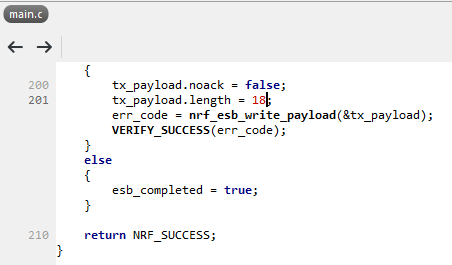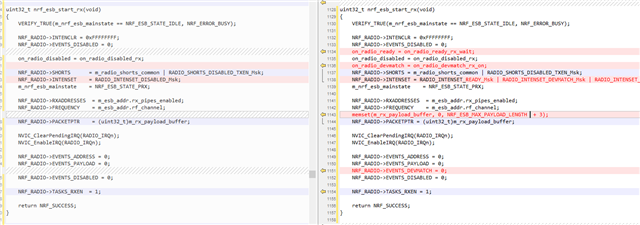My project is based on the examples\proprietary_rf\esb_low_power_prx\pca10056\blank\arm5_no_packs, and modifications have been made with reference to https://devzone.nordicsemi.com/f/nordic-q-a/32481/device-match/133989, and NRF_ESB_MAX_PAYLOAD_LENGTH = 64 with dynamic payload length.
I have encountered a issue.
When packet length increase in transmitter, not every length can communicate successfully. And success and failure take turns occurring.
eg.
NRF_RADIO->DACNF|= (1U << (pipe + RADIO_DACNF_TXADD0_Pos)),
length in nrf_esb_payload_t is 15 Byte or 16Byte, receiver can receive this message, but length in nrf_esb_payload_t is 17 Byte or 18Byte, failed.
19,20Byte success,and 21 22failed .....
and NRF_RADIO->DACNF|= (0U << (pipe + RADIO_DACNF_TXADD0_Pos)),
length in nrf_esb_payload_t is 15 Byte or 16Byte, receiver cannot receive this message, but length in nrf_esb_payload_t is 17 Byte or 18Byte, success.
19,20Byte failed,and 21, 22Byte success .....
Hope someone can help me.
52833,SDK 17.
Best regards,


